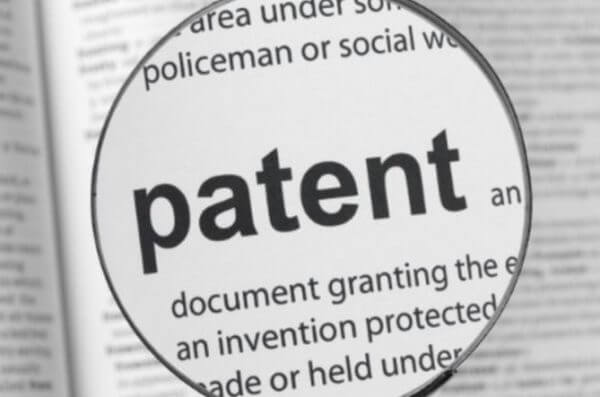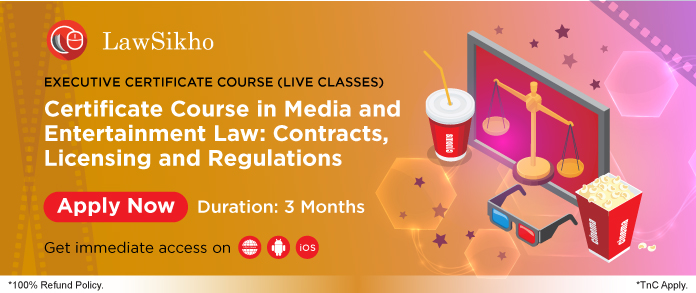This article is written by Gaurangi Kapoor who is pursuing a Certificate Course in Intellectual Property Law and Prosecution from LawSikho.
Table of Contents
Background
Historically, grant of a patent was a rigorously time-consuming process from its provisional application to the grant of the patent. However, with amendments in 2016 and 2019 to the Patents Rules, 2003, the time for grant of a patent has been reduced to six months “depending on the promptness of the applicants in cooperating with the Controller”. The amendment has been done to reduce the time period of grant of a patent, clear pendency of cases and encourage more filings of patent claims to eventually promote technological advancement and innovation.
Introduction
The patent term is twenty years from the date of filing of the patent application irrespective of the delays an application might face to be granted a patent. This process of examination reduces the period of enjoyment and protection of the patent to two-three years. A request for expedited examination of the patent application fast-tracks the grant of the patent if and when the applicant co-operates promptly with the Controller and thereby, increases the time period comparatively from the patent granted vide normal examination. As per the analysis of LexOrbis fast-tracking of patents helps:
- Litigation – an application which has been granted a patent, finds easier to sue for infringements and monetize its investment or defend itself when sued by another party in the court.
- Investment – a patent grant can better monetize the applicant’s investment in research and development, it makes the patent more investor-ready as investors would find it safer and healthier to invest in a protected patent and further the patent is able to attract funding and increase its company’s value.
The expedited examination process was originally launched to benefit domestic innovative companies and run parallel to Make in India and Start-up India Initiatives. The Indian Patent Office (“IPO”) employed more than 250 patent examiners to meet the demand of expedited examination.
Eligibility
Patent Amended Rules of 2016 made the Expedited Examination process applicable to only two categories of applicants:
- Applicants who opted the Indian Patent Office as the International Searching Authority or as the International Preliminary Examination Authority in their respective International Applications or;
- The Applicant is a start-up.
However, the Patent Amendment Rules 2019 expanded the applicability of expedited examination to more categories including:
- Applicant who files a patent application under any specific arrangement between the IPO and a Foreign Patent Office which is similar to a Patent Prosecution Highway.
- A small entity, government undertakings (government departments; institutions established/owned/controlled by the Central/Provincial/State; government company; an institution wholly or substantially financed by the Government) and women applicants.
Draft Patents (Amendment) Rules, 2021 have proposed to add “(ca) ‘eligible educational institution’ means an institution established by a Central, Provincial or State Act, which is owned or controlled by the Government and is wholly or substantially financed by the Government.” Additionally, have added an explanation for the term “substantially financed” to have the same meaning as defined in Explanation to Section 14(1) of the Comptroller and Auditor General’s (Duties, Powers and Conditions of Service) Act, 1971 which means that an institution which receives a grant/loan of more than twenty five lakhs in a financial year from the Consolidated Fund of India or from the State or a Union Territory having a legislative assembly and such amount is more than seventy five per cent of the total expenditure of the institution.
Expedited examination procedure
The rules governing the procedure are laid down in Rule 24C of Patent Rules, 2003. A request has to be initiated for expedited examination by filing Form 18A within forty-eight months/four years from the date of priority/date of filing of the patent application, whichever is earlier. A normal examination can also be converted into an application for expedited examination by paying the balanced fee. While a published application or application for publication shall accompany such request along with the request for expedited examination.
The Examiner has to examine the patent application and make a report within one month but not exceeding two months from the date of reference of the application to him. Thereafter, the Controller is required to dispose of the report made by the examiner within one month of receipt of the report and the first statement of objections, if required, are to be issued within fifteen days from the date of disposal of the report by the Controller.
The Applicant has to file a reply to the statement of objection within six months from the date of the examination report with an extension of three months. However, replying promptly to the examination report is crucial to expedite the examination process so that the application can be disposed of within eight months and the reply could be examined by the IPO at the earliest.
The Controller of IPO has to dispose of the application within a period of three months from the date of receipt of the last response from the applicant to the first examination report or within three months from the last date to proceed the application for grant.
The catch here is that this timeline does not take into account the pre-grant opposition time period that may add up to the overall process and the power the Controller has to put a cap to the number of applications that shall be entertained for the expedited examination process each year.
Patents granted within one year under the expedited examination procedure
A patent application for ‘Apixaban’, an anticoagulant, was granted patent in four months from the date of filing of application for the expedited procedure. The request for expedited examination was filed on 21st March, 2017, the first examination report was created in ten days, on 31st March, 2017. The reply to the first examination report was also filed by 4th May, 2017 and the patent was granted by 12th July, 2017 (Effectual Services). Another patent granted for a startup, Effectual Legal services, is ‘system and methods for detecting intrusion of perimeter using a plurality of sensors’. The patent was granted within one year from the date of filing of the application. Optimus Pharma Pvt. Ltd. was able to receive a patent grant within ten months from the date of filing of the patent application.
Patent Prosecution Highway
Similar to the expedited examination procedure more steps are being taken to accelerate the examination of patents and reduce the backlog and improve the quality of search and examination of different patent applications. On November 20th, 2019, India initiated its first Patent Prosecution Highway (“PPH”) pilot programme between IPO and Japan Patent Office (“JPO”) for a period of three years. Under this programme, expedited prosecution of patent applications will be allowed in India based on an allowed or granted corresponding application in JPO and vice versa.
However, each year for an initial period of three years only hundred cases will be entertained and application in the technical fields of “Electrical, Electronics, Computer Science, Information Technology, Physics, Civil, Mechanical, Textiles, Automobiles and Metallurgy” will be received.
The pilot programme will be held with other countries as well but right now it has been adopted between IPO and JPO. However, India was not the first to adopt this programme, in July, 2006, the first PPH programme was commenced between USPTO and JPO to expedite the process of granting patents.
Under the PPH, patent offices of participating countries have agreed that “when an applicant’s application gets a final decree from a patent office for at least one claim, the same applicant can demand for an expedited examination of relevant claim(s) in a subsequent patent application pending in the second patent office”.
Even though the effort behind the programme is to accelerate patent grants, many issues have been highlighted and the PPH has received criticism. The programme is a bilateral agreement yet if a patent application falls common for agreements between Japan and other nations such as the United States, and the application has been granted patent in the USA, the same will be expedited in Japan and since it will be expedited in Japan, having a PPH with India, India as well will have to expedite the process, resulting in a multi-country impact rather than a bilateral one.
However, proper guidelines are released by the patent offices for effective implementation of the programme.
Similar programmes at the united states patent and trademark office and European Patent Office
In the USA, Accelerated Review and Prioritized Examination are the two systems to fast-track the patent application process. The Accelerated Review system helps an applicant to receive a patent grant within twelve months. Furthermore, the system of Track One is an expedited process for newly filed utility and plant patent applications to receive their final requirements of patent applications within twelve months. It does not even require a pre-search examination report to initiate the examination procedure.
While the European Patent Office allows fast-tracking of patent applications through the programme Speed Program for Accelerated Prosecution of European Patent Application. It activates Accelerated Search and Accelerated Analysis. The programme also aids applicants to obtain Extended Search Report, search opinion under European Patent Convention, the First Review Report and or any correspondence under the examination procedure of European Patent Convention (Helpline Law).
Conclusion
The expedited examination procedure is a welcome move to fast-track the grant of patent applications and take measures to reduce bottlenecks present in the Indian patent system. The expedited examination procedure has since 2016 witnessed and undergone multiple amendments to expand the categories of applicants including women, small entities and startups to name a few.
Applicants, especially startups have been the beneficiaries of the process as multiple applications have been granted patents in record-breaking time of four months, ten months etc. India also initiated the patent prosecution highway pilot programme, beginning it with the patent office of Japan for a three year period. However, India is not the first country to have come up with the pilot programme, it was the United States which launched the first pilot programme in 2006.
References
- Dixit, Priyanshi. “Patent Prosecution Highway: A Fast-track to Patent Examination.” Mondaq, Khurana and Khurana, 2019, https://www.mondaq.com/india/patent/868618/patent-prosecution-highway-a-fast-track-to-patent-examination. Accessed 7 April 2021.
- Effectual Services. Expedited Examination- Making Grant of Patents Faster in India. 2020. Effectual Services, https://www.effectualservices.com/expedited-examination-making-grant-of-patents-faster-in-india/#:~:text=Indian%20Patent%20Office%20had%20come,which%20got%20revised%20last%20year.&text=The%20Expedited%20Examination%20was%20earlier,Start%2Dups. Accessed 6 April 2021.
- Helpline Law. “Fast-tracked examination of patent applications in India.” Helpline Law, 2021, https://www.helplinelaw.com/business-law/FTEOP/fast-tracked-examination-of-patent-applications-in-india.html. Accessed 7 April 2021.
- Hirani, Akil, and Amrit Mehta. “The Viewpoint: India pushes for continued growth in Pharma sector.” Bar and Bench, 2021, https://www.barandbench.com/view-point/the-viewpoint-india-pushes-for-continued-growth-in-the-pharma-sector. Accessed 6 April 2021.
- Kapadia, Pooja, and Aarushi Jain. “Expedited Grant of Patent in India- A Myth or Reality.” Nishith Desai Advocates, 2017, https://nishithdesai.com/information/news-storage/news-details/article/expedited-grant-of-patent-in-india-a-myth-or-reality.html. Accessed 6 April 2021.
- Krishna & Saurastri Associates LLP. “Draft Patents (Amendment) Rules 2021.” Lexology, 2021, https://www.lexology.com/library/detail.aspx?g=d7d5faab-fdc5-4d38-b181-0a17f23f961e#:~:text=On%20February%2009%2C%202021%2C%20the,amend%20the%20Patents%20Rules%2C%202003. Accessed 6 April 2021.
- Manoria, Neha. “Expedited Examination fast-tracks patent grants in India.” Lexology, 2017, https://www.lexology.com/library/detail.aspx?g=66db9894-7f00-4f4c-a8fc-c0aee7dcf80c. Accessed 6 April 2021.
- Wee, Shermaine Shimei, and Maik Brinkman. “Bridging India and Japan via the Patent Prosecution Highway (PPH).” Mondaq, 2020, https://www.mondaq.com/india/patent/919730/bridging-india-and-japan-via-the-patent-prosecution-highway-pph. Accessed 7 April 2021.
Students of Lawsikho courses regularly produce writing assignments and work on practical exercises as a part of their coursework and develop themselves in real-life practical skill.
LawSikho has created a telegram group for exchanging legal knowledge, referrals and various opportunities. You can click on this link and join:
 Serato DJ Crack 2025Serato DJ PRO Crack
Serato DJ Crack 2025Serato DJ PRO Crack











 Allow notifications
Allow notifications


